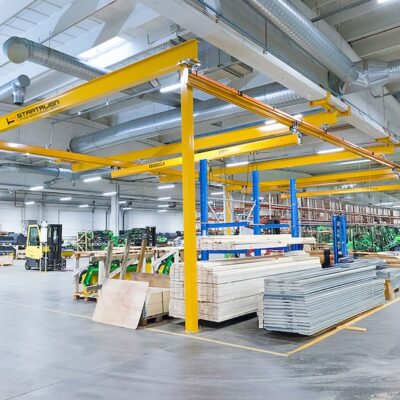What are the jobs of the future?
In today’s uncertain world everyone is trying to crystal ball their future. And why wouldn’t they? Roxanne Calder predicts tomorrow’s employment landscape. Our employability has never been more important, nor fragile. Globally, […]
In today’s uncertain world everyone is trying to crystal ball their future. And why wouldn’t they? Roxanne Calder predicts tomorrow’s employment landscape.
Our employability has never been more important, nor fragile. Globally, there were 114 million job losses during COVID in 2020, and in the second quarter of 2020 reduced hours equated to 525 million jobs. Our working world can never be the same.
I can’t predict the future, but I deal daily with the jobs of the present and being an employment expert, this is what I can tell you about the future of our workforce and jobs.
There are jobs now that we’d never heard of a decade ago. According to the World Economic Forum, 65 percent of primary school children will end up working in new job types that are not even on your radar yet. This is nothing to be daunted by; it’s always been a part of our human fabric and history.
Have you heard of a knocker-upper? Probably not. They were human alarm clocks; legitimate and respected jobs. The same as the milkman. And what of influencers – who would have considered such a job 10 years ago?
While certain jobs disappear, others evolve.
In 1934, on the topic of training at school, the New York Times wrote, ‘should we meet the eager interest of present-day or jobs that seem most probable?’. Today, in 2021, we can ask the same question. Every new era brings different needs and demands when it comes to employment.
Opportunities abound
Already, there are a multitude of job opportunities in various industries. The world’s population is ageing and with life expectancy increasing, there are ample jobs and not just for healthcare workers. Consider all that flows on from trainers, educators, counsellors, personal health trainers, exercise experts, psychologists – all specializing within the aged industry.
Social media opens a realm of opportunities – good and not so good. With the search for perfection and the ideal ‘pic’, the aesthetics industry is growing rapidly. In the next five years, the global medical aesthetics market is projecting a 10.9% compound annual growth rate (CAGR). As with the aged industry, I suspect the increase in demand to be those services supporting our human development in society.
Future-proof yourself
So, how to future proof yourself and look to the jobs of the future?
Focus on transferable skills. The continual acquisition of skills invests in your future. Skills evolve, but unlike jobs that disappear, your skills do not. And like all good investments, skills too increase in value.
The human alarm clock was a great project manager and workforce coordinator and your milkman, logistics and delivery specialist. Upskill, reskill, be curious and prepare to pivot. We are working in what is referred to as our fourth industrial revolution. Think of it as smart-tech. The rate of technology is not expected to decrease and, in some areas, will accelerate.
Australia and New Zealand are experiencing a severe talent and skills shortage. Often confused with a population issue – and in some regards, is correct with our ageing population exiting the workforce and the significant decrease in migration. However, what overlays all of this is the skills deficit. Put simply, we don’t have the skills to keep up with the rate of demand required for the present and future job market.
While many roles of today will continue, the way we perform these roles will change. Wearable technology allows nurses to provide real-time data, allowing for greater efficiency than previous manual methods of filing, updating etc.
As for your local mechanic? With cars now fitted with electronics, the role has morphed into a diagnostic technician. ‘Same job’ fixing cars – just done differently.
The skills gap needed for future jobs
Enhancing your skillset and having a thirst for knowledge will be your competitive advantage. With the aforementioned shortage of skilled workers across the board, there is an expectation from employers for existing workers to fill in the gaps, 94% of business leaders expect employees to pick up new skills on the job.
With the move to work remotely and more independently, the skills increasing in demand are critical thinking, problem-solving, self-management, learning, communication, resilience, and flexibility. These are some of the major skills to transition you forward to future and alternate jobs and job types. This must be music to the ears of anyone concerned about jobs of the future.
Perhaps not? Whilst employers expect to offer reskilling and upskilling to over 70% of their employees by 2025, only 42% of those employees are expected to take up the reskilling and upskilling opportunities.
Being in tune with the future demands and ready to mould and adapt is essential, but so is polishing the craft of being employable. Knowing what is next will be of little help if you can’t future-0proof yourself. It is about being deliberate in your ongoing professional development to be ready for the future of jobs as well as the jobs of the future. It is the choice and not the accident that will decide how successful you are.
Roxanne Calder, author of ‘Employable – 7 Attributes to Assuring Your Working Future’ (Major Street $29.95), is the founder and managing director of EST10 – one of Sydney’s most successful administration recruitment agencies. Roxanne is passionate about uncovering people’s potential and watching their careers soar. For more information on how Roxanne can assist you in your career, visit www.est10.com.au






